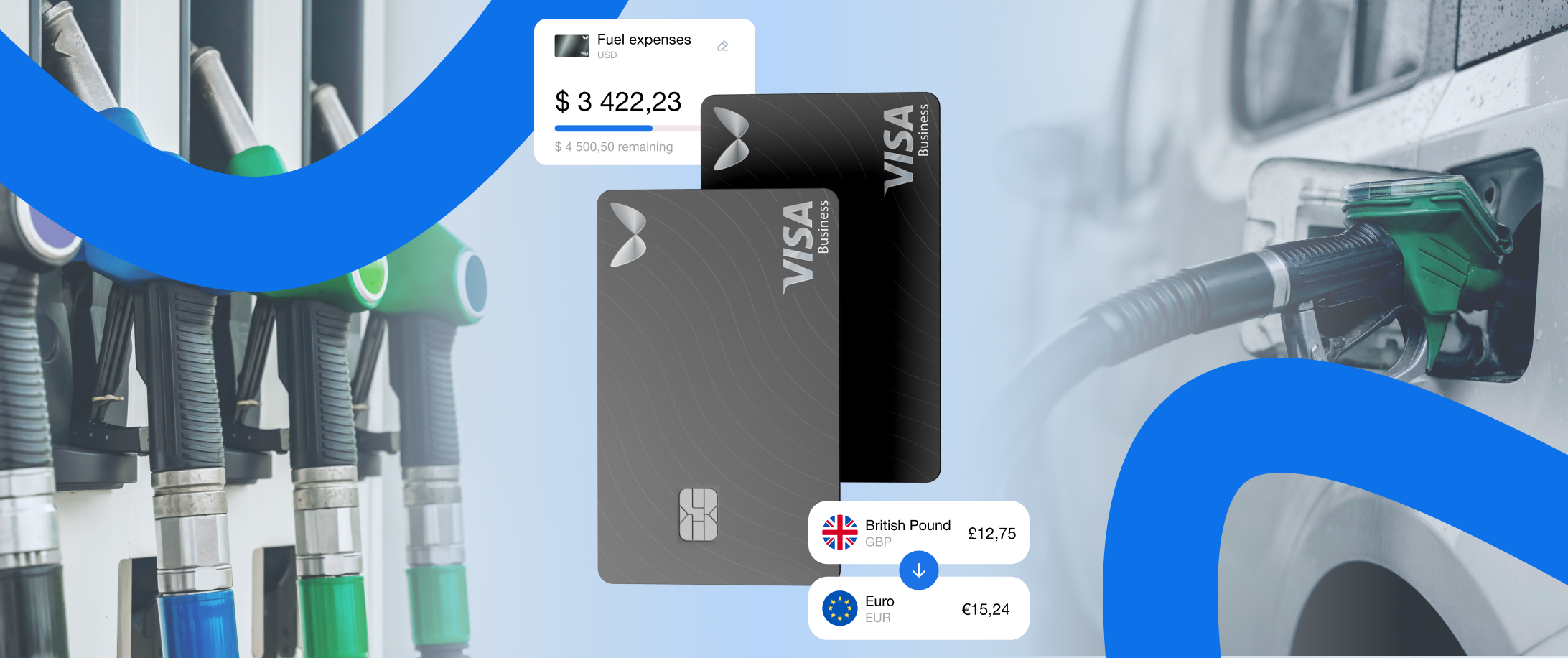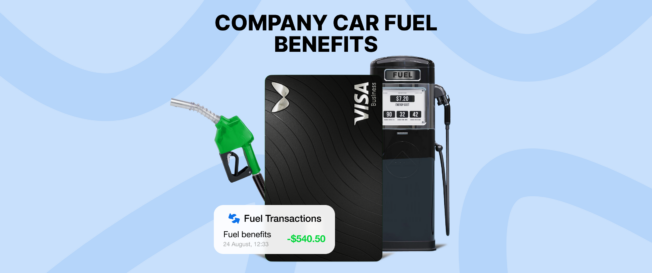Plenty of companies provide perks for their employees in the UK. Unfortunately, the HM Revenue and Customs has introduced the concept of a ‘taxable benefit’ for certain extras. Fuel bonuses are among them.
This article explains the company car fuel benefit tax, how to calculate it, and how to avoid unnecessary taxation for your business.
So, let’s start with the definition of a fuel benefit.
Plenty of companies provide perks for their employees in the UK. Unfortunately, the HM Revenue and Customs has introduced the concept of a ‘taxable benefit’ for certain extras. Fuel bonuses are among them.
This article explains the company car fuel benefit tax, how to calculate it, and how to avoid unnecessary taxation for your business.
So, let’s start with the definition of a fuel benefit.
What is the company car fuel benefit?
Organisations provide many perks to their employees. Among them are free courses, parking spaces, company cars, external child care, and fuel benefits. All those bonuses are called benefits-in-kind. The government considers extras a taxable benefit if staff members use them for individual purposes.
Firms provide employees with company car fuel benefits, usually for operational business purposes. However, some companies entice potential team members with fuel bonuses for personal use. The business and staff should know the taxes they must pay in such cases.
If an employer doesn’t subsidise the fuel cost to employees, they pay it from their pocket.
The business must pay National Insurance contributions (13.8%) for any petrol expenditures on staff’s personal fuel. Even if personnel use the firm’s electric vehicles for personal travel, you must pay national insurance.
But how much do you need to pay in taxes on this benefit-in-kind? In the following few sections, we will discuss this question.
How do you calculate the company car fuel benefit?
This benefit should be taxed appropriately if a team member spends a fuel card for personal use. To calculate these taxes, you need to know your benefit-in-kind (BIK).
The BIK formula is CO2 emissions x fuel benefit charge x income tax bracket.
The following sections reveal how to get each component of this formula to determine BIK.
How does the fuel benefit charge affect me?
As a part of the equation, tax charges are sums established by the HMRC. This annual figure was invented in 2003. It changes inconsistently every year. For 2024, the fuel benefit charge is £27,800. The table below indicates amounts that pertain to previous periods:
| Tax year | Fuel benefit charge |
| 2023-2026 | £27,800 |
| 2022-23 | £25,300 |
| 2021-22 | £24,600 |
| 2020-21 | £24,500 |
| 2019-20 | £24,100 |
| 2018-19 | £23,400 |
| 2017-18 | £22,600 |
| 2016-17 | £22,200 |
| 2015-16 | £22,100 |
| 2014-15 | £21,700 |
This indicator matters to employees who use fuel cards provided by their employers. HMRC sees company fuel benefits as free fuel and charges extra tax.
So, if your staff use company cars to buy personal fuel, the above figure matters to them. Knowing the sum involved in calculations helps to determine the company fuel benefit tax.
Example of how to calculate the company car fuel benefit
Let’s say you have a vehicle with a CO2 emission of 94-99 grams/km. Then, according to the table mentioned here, your CO2 emission percentage will be 24%. The fuel card benefit charge for 2024-2025 is £27,800. Multiply the first percentage and the figure and receive the result of £6,672.
This number is a taxable benefit that should be charged under established thresholds. How much tax you must pay? The income tax rate for this benefit is 20%. Multiply £6,672 by 20%, and your company car fuel benefit tax will be £1,334.4.
Spending less than £1,334.4 a year on petrol for personal use doesn’t make sense. Then, using company vehicles for individual purposes becomes unprofitable.
Avoiding unnecessary tax liability with fuel cards
Firms use fuel cards as a tool for accountability and for saving administrative costs on business trips. In the following sections, we will describe what a fuel card is, how many benefits it has, and how to lower your tax burden for an employer and employees.
Read further to learn how to avoid potential tax implications.
What is a fuel card?
Fuel cards are a payment method for purchasing petrol and other car-related expenses. Companies, banks, and other financial institutions can issue them. Their goal is to facilitate fuel accounting within a company and manage fuel costs efficiently. Small businesses, midsized and large ones, use such cards for fleet management to estimate the value of the fuel and the fuel card tax that must be paid.

Benefits of fuel cards
The company fuel card can be beneficial for both businesses and employees.
So let’s start with your staff. Why is it favourable to use such payment cards to buy petrol? Here is the answer:
- Convenient payments: Employees don’t have to carry cash with them or collect receipts. This card automatically forms the invoice visible to a company.
- Saving costs: The firm is charged directly. So your staff don’t need to spend their money buying petrol and reclaiming it afterwards.
- Less paperwork: Fuel card users don’t need to collect receipts from petrol stations because any invoice movement is between a pump and your company.
- Extra bonuses: Workers can receive discounts and reward points for purchasing a particular amount of petrol and other vehicle-related expenses. Sainsbury, Morrisons, Tesco, and other fuel stations offer such bonuses.
Fuel cards work for companies, too. Business benefits from using a fuel card are the following:
- Saves admin costs: Numerous employee payments and related documents are automatically processed. HMRC pre-approved invoices are transmitted to an employer’s accounting software, and the company receives a single bill every month.
- Easy VAT reclaims: Invoices on fuel expenses can be used to reclaim VAT.
- Spending control: Businesses can save time using fuel cards to track and manage employees’ petrol spending. A monthly detailed report displays each team member’s fuel usage.
- Fewerfuel costs: Since many petrol stations offer discounts for fuel card owners, your company saves a significant sum on fuel expenses.
How to avoid tax liabilities connected with fuel expenses
What can fuel cards do to alleviate tax encumbrance? The company car fuel benefit tax occurs depending on the individual’s intent. Tax is charged when you use fuel for personal use. Travel from home to work and back may be considered a usage for individual purposes. Any employee who utilises this scheme will be taxed. However, if transportation company couriers deliver goods, their fuel expenses won’t be charged by HMRC.
Сompanies also suffer from the use of fuel cards for non-business travel. By giving employees the ability to fuel purchases for individual spending, an employer creates hurdles to claim VAT for themselves. The HMRC permits such reclaims for business miles only. As a result, the VAT on the cost of petrol spent by your employees for trips during personal hours the UK government won’t reimburse.
Factors such as CO2 emissions, fuel type, and car type also affect the tax you pay.
How do I avoid those complexities? Fuel cards help you with fuel expense management. However, to reduce or eliminate as much tax burden as possible, stick to two crucial rules:
- An employee shouldn’t use a fuel card for personal travel.
- Your staff will pay back any fuel costs for private journeys to your office.
Of course, by any means, employees want to reduce the tax paid to the UK government for free fuel. Establish a fuel card usage policy that regulates personal responsibility concerns while utilising those cards within your business. Sticking to those regulations can help you make fewer tax payments.
Keep track of your fuel spending
As you can see, efficient fleet management and cost control are essential. Diligent accounting and robust reporting are fundamental for strict funds and mileage oversight. Wallester’s business expense management solution enables innovation and smooth accountability and management. Expense control and establishing spending limits in real-time foster this process. Detailed reporting and the user-friendly dashboard streamline analysis and expense control management.
Take the maximum of our product potential for your business. Discover it for free here.


